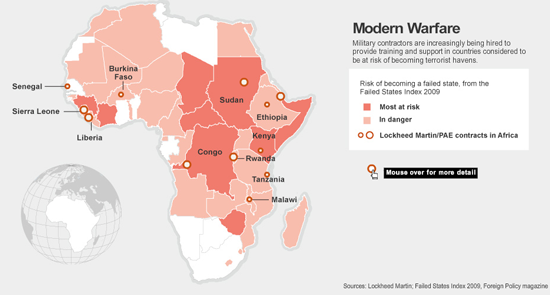Meeting about Haiti in Montreal on Monday, representatives from 14 donor countries and the European Union came together and committed to a detailed, specific, well-coordinated plan … to come up with a plan.
Chairman of the Conference, Canada's Foreign Minister Lawrence Cannon:
We have a shared vision on the way forward, one plan that ties us all together. ... Clear vision, co-ordination and adherence to principles of aid effectiveness will be essential.

Stay tuned for the follow-up meeting to be held at the UN in March.
In the meantime, though, stories are filtering through from aid workers on the ground confronting practical constraints of bottlenecks and distributions…not waiting around for plans.
A team of US doctors who were among the first medical responders in Port-au-Prince described their experience in a scathing WSJ op-ed:
…Our operation received virtually no support from any branch of the U.S. government, including the State Department. As we ran out of various supplies we had no means to acquire more. There was no way to transfer patients we were poorly equipped to manage (such as a critically ill newborn with respiratory distress) to a facility where they would get better care. We were heartbroken having to tell patients suffering incredible pain we could not perform their surgery for at least a day….
Later, as we were leaving Haiti, we were appalled to see warehouse-size quantities of unused medicines, food and other supplies at the airport, surrounded by hundreds of U.S. and international soldiers standing around aimlessly.
The international relief and development blogger Tales from the Hood is now blogging from Port-au-Prince:
Wyclef Jean complained on Oprah about air-drops during week one: “My people are not animals…” And I would, of course, completely agree. They’re not animals. And I’d agree that air-drops are or should be a last-resort means, and are not standard relief distribution procedure. But then this is hardly a standard situation…. Back-of-the-cocktail-napkin estimates say that better than half of distribution events in Haiti since the earthquake turn violent, that violence ranging from beneficiaries beating each other up over bags of rice, to full-on looting of the truck, to shots fired and people killed. And his suggestion that perhaps he should coordinate distribution in Haiti is straight up the dumbest thing that I’ve heard in a very long time. … Maybe I should produce his next album?
A letter from the co-founder of the NGO SOIL, Sasha Kramer, provides a somewhat different perspective:
For centuries Haiti has been portrayed as a dangerous country filled with volatile and threatening people, unsafe for foreigners.
…this wall of fear … has had very serious implications for the distribution of the millions of dollars of aid that have been flowing into the country for the past 10 days. … much of the aid coming through the larger organizations is still blocked in storage, waiting for the required UN and US military escorts that are seen as essential for distribution, meanwhile people in the camps are suffering …
And then Kramer notes the contrast among the Haitians themselves.
The most striking thing I have noticed … is the level of organization and ingenuity among the displaced communities. Community members stand ready to distribute food and water to their neighbors, they are prepared to provide first aid and assist with clean up efforts, all that they are lacking is the financial means to do so.
If you know of good first person accounts being written by aid workers in Haiti, please add them in the comments.
 From Aid to Equality
From Aid to Equality







 There is an
There is an